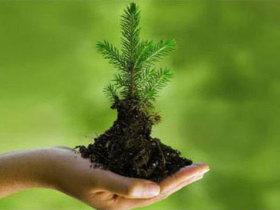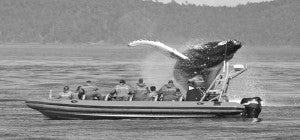Lucie Edwards participated in this year’s Environmental Studies Association of Canada conference, as well as the meeting of the Canadian Society for the History and Philosophy of Science. She shares a debrief from each event below.
At the Environmental Studies Association Conference I participated in a panel on the state of science policy in Canada. My presentation was called “What you don’t know CAN hurt you!” I argued that the recent trend to push evidence-based assessments and science for decision-making to the periphery of public policy is the single most important—and most disturbing—trend in Canadian science policy. I explored the decline in federal funding for basic research in favour of support for corporate R and D; the closure of key government research facilities and inspection services across a wide range of departments in the name of cost-cutting; the layoff of research scientists, forcing many to change fields or explore opportunities overseas; the curbs on federal government scientists communicating with the media and general public; the elimination of legally mandated environmental assessments on a range of strategic infrastructural projects; and the policy chill which discourages government scientists from entering new and important areas of enquiry– which have contributed to the decline in Canada’s once-celebrated public science sector. I also suggested a number of initiatives that the scientific community could champion to restore public science’s luster and—much more important—ensure that Canadians can access the science they need as a basic prerequisite for good governance.
Also at the Environmental Studies Association Conference, I delivered a paper on recent trends in the international politics of Biodiversity. I reported how the biodiversity community, deeply frustrated that previous initiatives to bring attention to their cause had had little or no impact in policy circles, and expressing a sense of urgency that the issues of biodiversity are becoming critical, had proposed the creation of an intergovernmental assessment panel modelled on the IPCC to take on the science of biodiversity and ecosystem services. This was a signal achievement by the policy entrepreneurs who lead biodiversity’s epistemic community, but the jury was still out whether the panel could in fact bring media attention and policy engagement to this negated policy area.
Finally, I delivered a paper at the History and Philosophy of Science Congress on “Atoms for Peace?” The Role of Science in Global Governance at mid-Twentieth Century”. This paper argues that global scientific cooperation has been characterized by oscillation between the assertion of cosmopolitan science culture by the scientific community, and the deployment of science by governments as an instrument of interstate competition. 1957-58 was the critical moment when these issues were most dramatically in play, marked by the restructuring of UNESCO, the rollout of interstate projects under the auspices of the International Geophysical Year, and the publication of the Vienna Declaration on the role of scientists in public policy.
I also participated in two excellent workshops on teaching science history and policy, and on environmental education. I was given helpful advice, made some excellent contacts. I think these workshops will help make me a more effective instructor. I will definitely look out for similar workshops in future.


